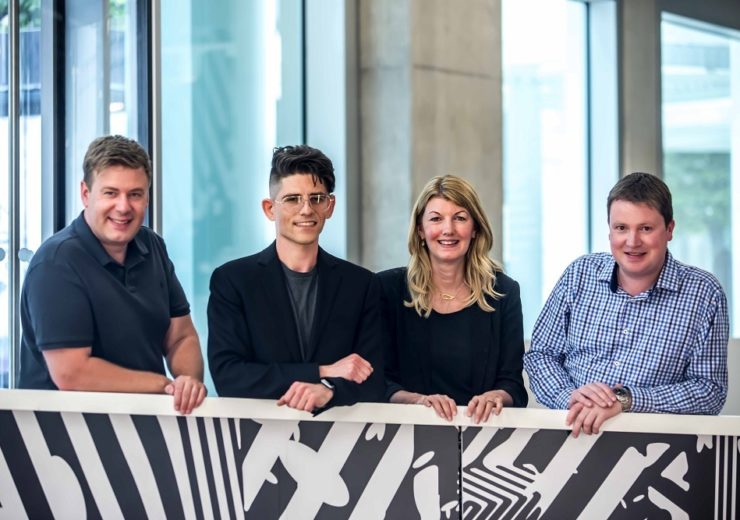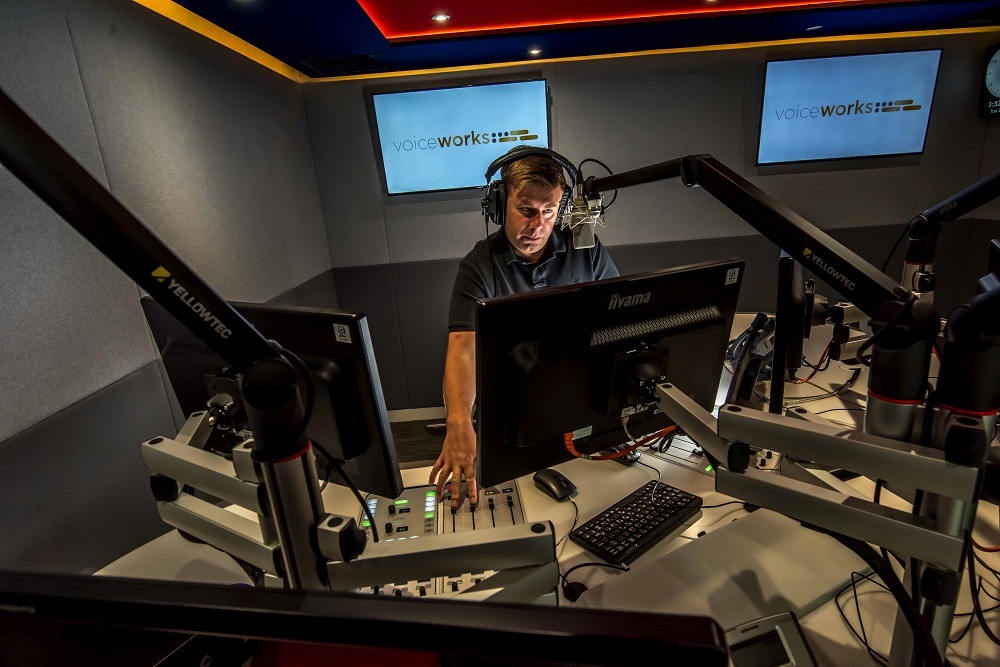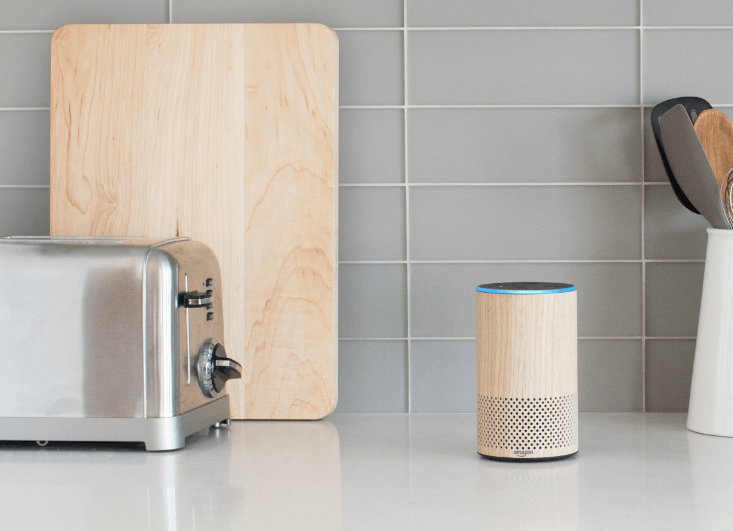Sophie Hind, managing director of audio marketing company Voiceworks, discusses the strategies businesses can use to get noticed through voice assistant technology

The Voiceworks team, from left: Kyle Evans, head of content; Igor Stark, head of AI and discoverability; Sophie Hind, managing director; Neil Sloan, content director
The uptake of voice assistant technology is anticipated to top 200 million users by the end of the year — but brands have been slow to utilise the tech. New audio consultancy company Voiceworks hopes to make the transition to a new style of marketing easier.
As the number of smart speakers in the home increases, it provides a new ways for brands to get their message heard.
While advertising online, television and radio is well established, companies are yet to exploit the potential of voice assistants.
London-based marketing consultancy Voiceworks has set out to help with the process, working with organisations as diverse as international banks and local colleges to develop content that’s designed to be heard.
Why businesses need to consider their strategy for voice assistant technology
Managing director Sophie Hind claims half of all searches will be made using voice-technology next year — but businesses have not kept up with this change in consumer habits.

“While 86% of brands have visual guidelines that dictate the font, logo and design, only 17% have audio guidelines,” Hind says.
“A great example of why brands need to consider their audio identity can be seen with Netflix.
“The noise the app makes as soon as you turn it on is instantly recognisable — if you had your eyes shut you’d still know that Netflix was on in the room.”
A study by Adobe found 48% of consumers are using voice for “general web searches”, and competition to come top of search rankings is fierce in the smart speaker space.
Hind adds: “Established brands may have spent years developing an online position, web content and a social media strategy. But, not many are considering how they are going to be found when people search via voice.
“You might get ten results on the first Google page, but you only get one on a smart speaker.
“Brands run the risk of not being found through voice if they don’t get the marketing right.”
What is Voiceworks?
Established in 2018, Voiceworks developed an end-to-end solution for companies wanting to get noticed on Amazon Alexa.
The company focuses on four main areas — technology, content, ‘discoverability’ and branding. It has a team of 20 working on broadcasting, marketing and technology.
Hind says: “When we were researching the market, we couldn’t find another company out there that satisfied those four areas of audio marketing under a single roof.
“In this new voice-first world, where more and more consumers are interacting through speech, we saw an opportunity to help bring brands to life through audio.”
One of the first organisations to hire the services of Voiceworks was Wakefield College.
The company worked with the college to develop podcasts on topics such as revision advice and mental health awareness to support pupils and parents.
“Children have taken to smart speakers,” Hind says.
“I hear my daughter talking to Alexa while she does her homework and asking it what the capital of a country is, or the answer to a math question.”

Voiceworks is also working with clients from healthcare, entertainment, sport, finance and travel.
The public sector is also a big area of business as it has “a wealth of information available online which can be made more accessible through voice,” according to Hind.
Local authorities are using the expertise of Voiceworks to develop audio content to advise residents on difficult topics, such as overcoming barriers to work and fostering and adopting children.
Voiceworks’ latest venture, Sport Social, focuses on content from the Premier League and will read out team line-ups, post-match reviews and daily podcasts featuring football pundits and experts.
Hind says: “When we first had the idea for Sport Social, we went to Amazon and Google, and they both were receiving a huge amount of requests around sport – in particular football.
“But they weren’t always able to satisfy the demand, and were often using text-to-speech to give scores or match updates.
“They want the smart speaker to be the voice of sport in the room, so it was a great fit.”
The future of voice assistant technology
For a company hedging its bets on a single technology, Hind remains optimistic.
“We’ve had voice assistants in our mobile phones for years, but the speed that smart speaker technology is being adopted far outweighs the speed of uptake when smartphones first launched ten years ago,” she says.
“The reason the uptake of voice is so great is because it’s a more natural way for us to communicate than typing, writing or swiping.
“It takes things that we already do and makes them easier — and as humans we like simplicity.

“I found it really interesting that one of the biggest uses of smart speakers is listening to music or radio.
“People might have a great speaker in the corner of their room but are still choosing to listen to Spotify through a smart speaker device that’s poorer quality.
“The only difference is that it’s easier to use.”
As the adoption rate of smart speakers increases, the uses for the technology are also developing.
Roughly a quarter of Google Assistant owners have used the device to purchase goods, and Hind claims this will be a key area of growth in the future.
She says: “The retail side of voice will start to take off next year.
“There are a large number of people in the US who are already making purchases via voice, but improving the experience will really help to increase its use.”
With more businesses and banks embracing the technology it will likely become easier to organise personal finances and purchase products through the use of voice.
Hind adds: “Google and Amazon have built voice technology into so many devices that there will come a point where we will be able to do almost anything through a spoken command.
“Every business needs a voice and audio strategy, otherwise they’re going to be left out the game.”


